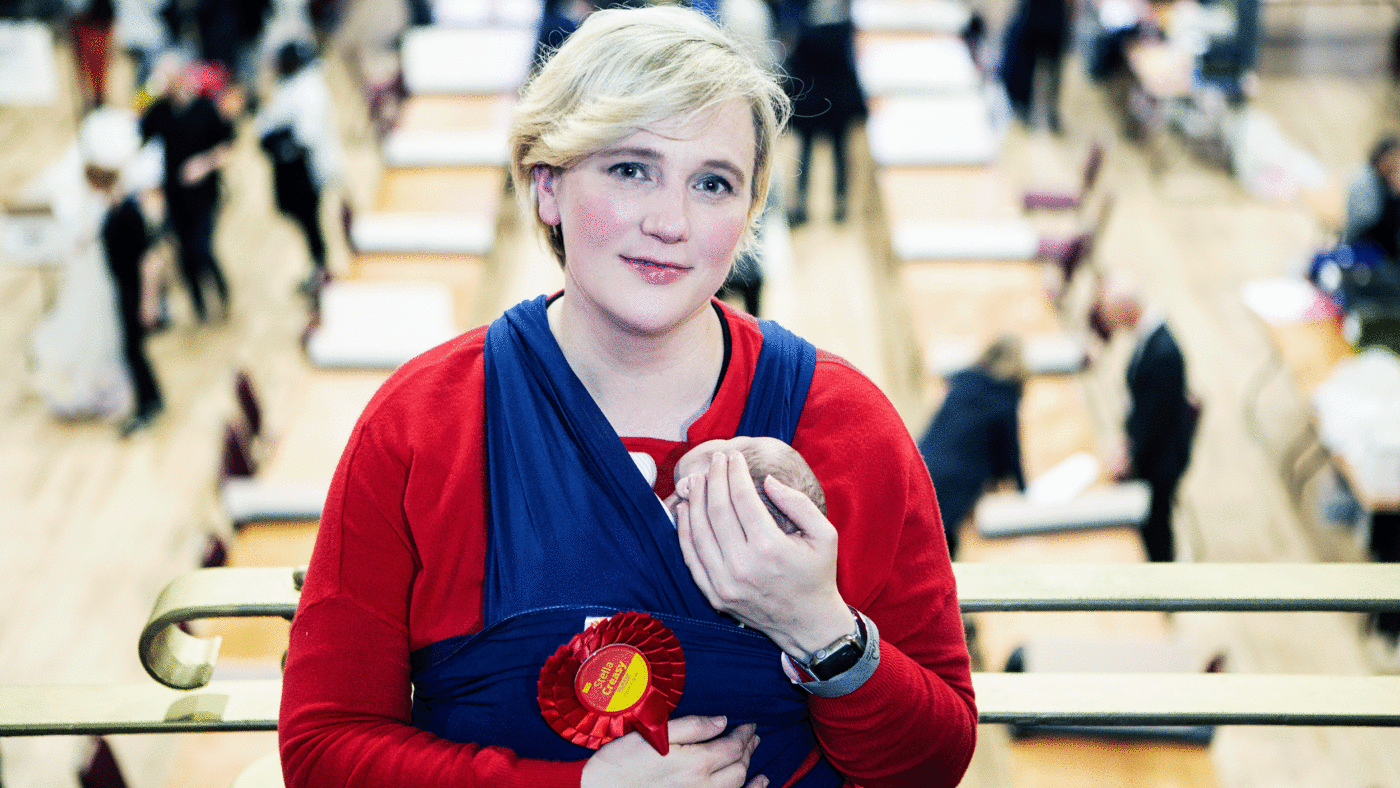There won’t be any winners from Stella Creasy’s battle to bring her baby into the House of Commons. Not a Parliament now held in contempt by much of the British public. Not the Walthamstow MP, whose demand, once you scratch beneath the surface, has the distinct whiff of cakeism. And probably not any innocent brought into what most perceive to be a den of iniquity and toxicity.
Creasy has been told that, according to updated parliamentary rules on ‘behaviour and courtesies,’ she cannot bring her three-month old son with her when she sits in the Commons. The Labour MP quickly took to Twitter, where she posted: ‘Mothers in the mother of all parliament [sic] are not to be seen or heard it seems’. And the social media mob duly played their part, with Speaker Sir Lindsay Hoyle today announcing that the chair of the cross-party Procedures Committee will be looking into the matter.
With women making up 34% of MPs, there probably is a case for addressing the barriers that prevent more coming forward. As Isabel Hardman wrote in Why we get the Wrong Politicians, the cost of standing for Parliament makes it a pipe dream for large sections of society, and culturally women seem to be encouraged less to take the financial risks that men do in order to become MPs.
These are genuine issues that need addressing. But the idea that motherhood itself is an obstacle to running for office – or that ‘politics and parenting don’t mix’ as Creasy put it – is a stretch. Parliament provides paid maternity leave for six months and a proxy vote. As Hoyle pointed out, there’s a nursery on site designed to enable parents to participate fully in the work of the House, which provides a level of flexibility, convenience and reassurance unavailable to most parents.
The news may have plunged Parliament’s PR team into despair after a torrid few weeks, but logic is broadly on their side. Children obviously require care and attention, meaning parents – and possibly colleagues – will be less productive with them there. Not only could Walthamstow constituents find their MP distracted, but voters across the nation may find their representatives unable to devote full attention to the legislative process. Thanks to our over-regulated state, there are also safety and liability issues for any employer who allows children onto their premises.
At first glance, Creasy’s protest is a noble one. Nearly 37,000 voters elected her to Parliament, and her duty is to represent them. But why, therefore, make the point that she doesn’t have ‘the employment rights to have maternity cover’? Is the £190,000 in staff expenses handed to MPs, typically footed by the taxpayer, insufficient? After the birth of her first baby, Creasy received experimental extra funding of £50,000 to employ a ‘locum’. This time she was (only!) offered £35,000 for extra help.
And there are more ways to serve constituents than in the Commons Chamber. MPs are in a fortunate minority of workers able to work from home. Those employed in bars, restaurants, hotels and retail outlets, but also self-employed skilled workers who normally go out to serve clients and customers from a home base cannot do their jobs remotely.
There are further inconsistencies in Creasy’s argument. The MP has said Pip, who is breastfeeding, ‘is very tiny, doesn’t do very much, [is] quite well behaved and even Jacob Rees-Mogg has acknowledged that’. Does this mean that women who bottle-feed – often not through choice – should be banned from bringing their babies to work? Should the mothers of noisy babies face a similar sanction, with the Leader of the House as judge and jury?
The public seem broadly sympathetic to Creasy’s predicament. Some believe it scandalous that Parliament won’t mandate masks but it will ban children. Others are simply of the view that there should be no limit to women’s rights in the workplace, regardless of how much it inconveniences employers. But if policy does change, then sympathy for Creasy’s privileged position may begin to wane. In most jobs, mothers leave their children in the care of others. They don’t have the luxury of full pay, office daycare and a team to plug the gaps while they take time out of work to raise a child.
Many parents would save a small fortune by bringing their children into work. A full-time nursery place for a child under three costs around £13,500 in the UK today – more than some private schools. Our government cannot solve women’s desires to ‘have it all’. What it can do is present them with the choice and allow them to make trade-offs. On a salary three times that of the national average, Creasy can quite clearly afford childcare. She’s just choosing not to.
Click here to subscribe to our daily briefing – the best pieces from CapX and across the web.
CapX depends on the generosity of its readers. If you value what we do, please consider making a donation.


